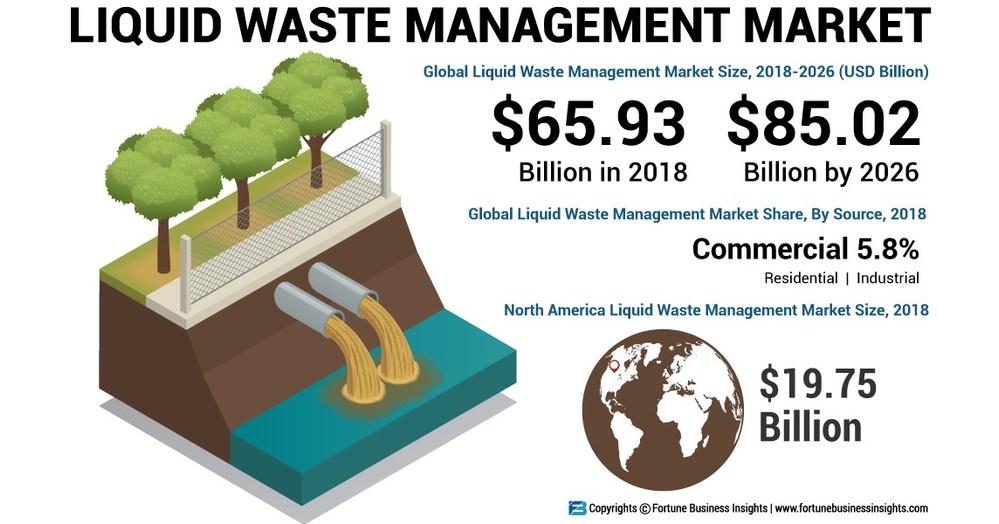Reclaim Waste - Questions
Reclaim Waste - Questions
Blog Article
The Facts About Reclaim Waste Revealed
Table of ContentsExcitement About Reclaim WasteIndicators on Reclaim Waste You Need To KnowSome Known Facts About Reclaim Waste.The smart Trick of Reclaim Waste That Nobody is Talking AboutThe Best Strategy To Use For Reclaim Waste
Check out the types, occurrences, and forms of liquid waste. Domestic sewage waste describes the waste and products from a property septic tank. This sort of waste is developed by human beings in houses, institutions, and various other buildings. This only includes sewage-disposal tanks that have a drainpipe area. The correct administration and disposal of domestic sewer waste require fluid waste to be transferred to a sewer treatment plant where the correct techniques and equipment are related to purify and dispose of waste.
Commercial waste usually includes prospective threats, such as flammable products or a mixture of liquid and strong waste items, and requires a much more innovative and in-depth disposal process. The disposal of industrial waste usually entails the filtration of waste prior to transportation to ensure secure and proper disposal. Hazardous waste is created from byproducts and drainage of commercial processes and production.
This sort of waste can not use the very same sewage administration transport or processes as septic or commercial liquids. The hazardous waste administration procedure calls for the evaluation and testing of fluid waste prior to it undergoes the disposal process (liquid waste removal). Runoff waste is the liquid waste that originates from drainage and excess stormwater in very booming locations or cities
Drainage waste can create contamination and flooding if not managed effectively. Find out more concerning sewage system cleansing and waste administration. Guaranteeing appropriate waste monitoring can prevent disasters and decrease environmental damage. Both people in property setups and experts in industrial or production industries can benefit from comprehending the processes and regulations of fluid waste management.
The Reclaim Waste Diaries
Call PROS Solutions today to discover our waste management and disposal services and the appropriate methods to look after the fluid waste you generate.
(https://ameblo.jp/reclaimwaste1/entry-12874802223.html)Do you understand what occurs to your water when you disengage, purge the commode or drain pipes the cleaning maker? No? Well, it's worth understanding. This so-called 'wastewater' is not just an essential source but, after therapy, will be launched to our land, waterways or the ocean. Made use of water from bathrooms, showers, baths, cooking area sinks, laundries and industrial processes is understood as wastewater.

water made use of to cool down equipment or tidy plant and equipment). Stormwater, a kind of wastewater, is drainage that moves from farming and urban locations such as roofings, parks, gardens, roadways, courses and gutters into stormwater drains pipes, after rainfall. Stormwater flows unattended straight to regional creeks or rivers, eventually reaching the sea.
The Best Guide To Reclaim Waste
In Queensland, a lot of wastewater is treated at sewer therapy plants. Wastewater is transferred from residential or commercial sites through a system of drains and pump terminals, referred to as sewerage reticulation, to a sewage treatment plant. Neighborhood governments construct, maintain and operate most sewer therapy plants. Operators are certified under the Environmental Management Act 1994 to release treated wastewater at an appropriate environmental criterion into rivers.
The Department of Natural Resources suggests neighborhood federal governments regarding managing, operating and maintaining sewerage systems and treatment plants. In unsewered locations, neighborhood federal governments may call for homeowners to mount private or household sewage therapy systems to deal with residential wastewater from toilets, kitchen areas, bathrooms and laundries. The Division of Natural Resources authorizes the usage of household systems when they are confirmed to be efficient.
The majority of stormwater obtains no therapy. In some new subdivisions, treatment of some stormwater to eliminate trash, sand and gravel has begun using gross toxin catches. Wastewater therapy happens in 4 stages: Eliminates solid matter. Larger solids, such as plastics and various other things incorrectly discharged to sewage systems, are gotten rid of when wastewater is passed with displays.
Wastewater after that streams right into big tanks where solids work out and are removed as sludge. Oil and residue are skimmed from the surface area. Makes use of tiny living organisms recognizes as micro-organisms to break down and remove continuing to be dissolved wastes and great bits. Micro-organisms and wastes are included in the sludge. Gets rid of nitrogen and phosphorus nutrients YOURURL.com that can create algal blooms in our rivers and intimidate marine life.
The Definitive Guide to Reclaim Waste
Nutrient removal is not readily available at all sewage treatment plants since it needs costly specialised tools. Clear liquid effluent generated after treatment might still contain disease-causing micro-organisms - liquid waste disposal.

Most wastewater flows into the sewage system. Under the Act, neighborhood federal governments provide approvals and licences for environmentally appropriate activities (ERAs) including wastewater launches that might have a regional influence.
The Basic Principles Of Reclaim Waste
Surveillance offers factual details about water top quality and can validate that permit problems are being fulfilled. The details gotten via surveillance provides the basis for making water quality decisions.
Report this page